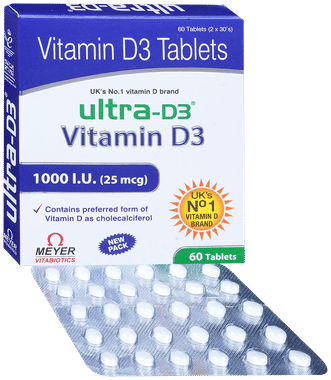Tachyra 100 Tablet
Product introduction
Tachyra 100 Tablet may be taken with or without food, preferably at the same time each day, to avoid a missed dose. Continuous monitoring of blood pressure and heart rate may be needed while taking this medicine. It is important that you keep taking it until your doctor decides it is safe to stop it. If you stop taking this medicine, you may get dangerous uneven heartbeats, which can be life-threatening.
The most common side effects of this medicine include lung damage, tachycardia, congestive heart failure, and elevation of liver enzymes. This medicine can also cause problems with your liver, lungs, nerves, and thyroid gland. Ask your doctor what signs to look out for and report any symptoms you have. It takes a long time to clear from the body. You may continue to have side effects after you stop using it. Ask your doctor about ways to prevent or reduce them.
Before getting this medicine, you should let your doctor know if you have low blood pressure, drink a lot of alcohol or have liver, heart, or thyroid problems. You should also inform your doctor about all other medicines that you are taking as many can seriously affect or be affected by this medicine. Some medicines like certain antibiotics and medicines for depression and mental illness should be avoided with this medicine.
Pregnant or breastfeeding women should consult their doctor before taking this medicine. Your doctor will carry out regular tests to check your liver and thyroid gland. You may also be advised other blood tests, x-rays, and eye tests both before and during treatment.
Uses of Tachyra Tablet
Side effects of Tachyra Tablet
Common side effects of Tachyra
- Lung damage
- Tachycardia
- Congestive cardiac failure
- Increased liver enzymes
How to use Tachyra Tablet
How Tachyra Tablet works
Safety advice
However, inform your doctor if you have an underlying kidney disease.
Tachyra 100 Tablet may cause hepatic injury. Dose adjustment may be required.
What if you forget to take Tachyra Tablet?
All substitutes
Quick tips
- Tachyra 100 Tablet may cause blurring of vision. Avoid driving or any activity requiring focus until you know how it affects you.
- It makes your skin sensitive towards sunlight. Use a sunscreen and wear protective clothing while going out.
- Your doctor may do regular blood tests, chest X-rays, ECG, eye test, thyroid, liver and lung function tests while you are taking this medicine.
- Notify your doctor if you develop breathlessness, persistent cough, jaundice, restlessness, weight loss/gain or eye problems.
- Notify your doctor about all other medicines that you are taking as Tachyra 100 Tablet can interact with many medicines.
- Inform your doctor if you are pregnant, planning pregnancy or breastfeeding.
Fact Box
Interaction with drugs
Patient concerns
FAQs
Does Tachyra 100 Tablet affect blood pressure?
What does Tachyra 100 Tablet do to the heart?
What are the warning signals of liver toxicity caused by Tachyra 100 Tablet?
Is Tachyra 100 Tablet safe?
What kind of vision problems occur with Tachyra 100 Tablet?
Disclaimer:
Tata 1mg's sole intention is to ensure that its consumers get information that is expert-reviewed, accurate and trustworthy. However, the information contained herein should NOT be used as a substitute for the advice of a qualified physician. The information provided here is for informational purposes only. This may not cover everything about particular health conditions, lab tests, medicines, all possible side effects, drug interactions, warnings, alerts, etc. Please consult your doctor and discuss all your queries related to any disease or medicine. We intend to support, not replace, the doctor-patient relationship.References
- Sampson KJ, Kass RS. Anti-Arrhythmic Drugs. In: Brunton LL, Chabner BA, Knollmann BC, editors. Goodman & Gilman’s: The Pharmacological Basis of Therapeutics. 12th ed. New York, New York: McGraw-Hill Medical; 2011. pp. 834-37.
- Hume JR, Grant AO. Agents Used in Cardiac Arrhythmias. In: Katzung BG, Masters SB, Trevor AJ, editors. Basic and Clinical Pharmacology. 11th ed. New Delhi, India: Tata McGraw Hill Education Private Limited; 2009. pp. 240-41.
- Briggs GG, Freeman RK, editors. A Reference Guide to Fetal and Neonatal Risk: Drugs in Pregnancy and Lactation. 10th ed. Philadelphia, PA: Wolters Kluwer Health; 2015. pp. 54-57.
- Nattel S, Gersh BJ, Opie LH. Antiarrhythmic Drugs and Strategies. In: Opie LH, Gersh BJ, editors. Drugs for the Heart. 8th ed. Philadelphia, Pennsylvania: Elsevier Saunders; 2013. pp. 288-95.
Marketer details
The list of available options shown with the same composition has been prepared upon the advice of registered medical practitioners, pharmacists affiliated with TATA 1MG. TATA 1MG does not promote any pharmaceutical product of any particular company, and all recommendations are based on the medical opinion, advisories from specialist medical and pharmaceutical professionals.
Lab tests offered by us

















